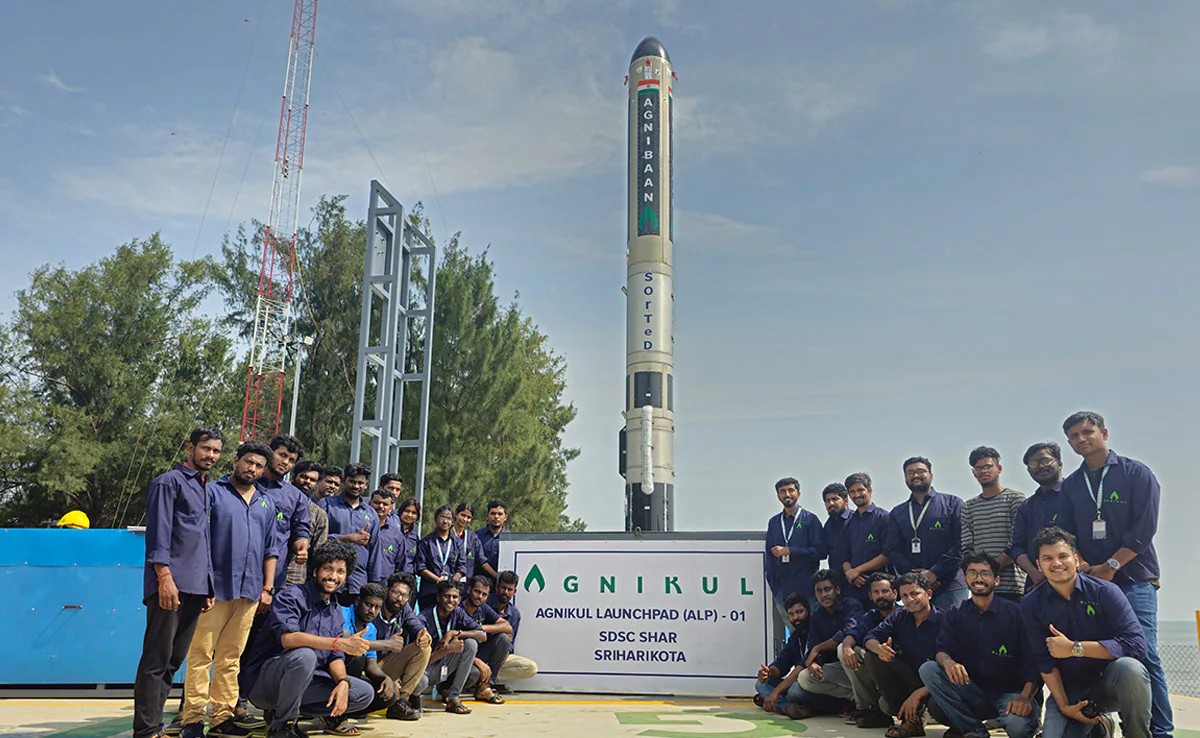NATIONAL: The rocket known as Agnibaan SOrTeD (Suborbital Tech Demonstrator), which is propelled by an engine that the Indian Space Research Organization (ISRO) is still working to perfect, was tested today by Agnikul Cosmos, a private space startup in India.
According to the Indian Space Research Organization (ISRO), the Chennai-based startup’s rocket launch at 7:15 a.m. was successful. According to ISRO Chairman Mr. S. Somanath, the launch was deemed “successful”.
Congratulations to @AgnikulCosmos for the Agnibaan SoRTed-01 mission’s successful launch from their launch pad. A significant accomplishment was the first-ever controlled flight of a liquid engine that is semi-cryogenic and is made possible by additive manufacturing, as announced on X by ISRO.
Agnikul’s mentor and IIT Madras professor Satya R. Chakravarty concurred that the Sriharikota launch was a success. After four launch attempts were canceled owing to technical issues, this was the rocket’s fifth attempt at liftoff.
Since rocketry is not for the timid, the young engineering team from the Chennai-based startup has been incredibly patient and resilient, persevering through setbacks after setbacks to achieve their goals.
It was the first test flight for the startup, which was established in 2017 by two young aerospace engineers to create “a place where people learn to use fire” and was housed at IIT-Madras.
The rocket, which is 6.2 meters long and 575 kg in weight, took off from Sriharikota and dove into the Bay of Bengal.
Agnibaan SOrTeD uses a semi-cryogenic engine powered by commercially available aviation turbine fuel, kerosene, and medical-grade liquid oxygen, achieving a feat no other Indian private firm has done.
According to Dr. Pawan Goenka, a mechanical engineer and the chairperson of the Indian National Space Promotion and Authorization Centre (IN-SPACe), which is part of the Centre’s Department of Space, Agnikul has exhibited the first semi-cryogenic and 3D printed engine by the Indian private sector. “This bold innovation could be a significant differentiator when commercial launches start by India’s start-ups.”
The space startup’s co-founder, Srinath Ravichandran, stated, “This launch is significant since it is India’s first launch from a private launchpad, and the rocket has the world’s first single-piece 3D printed engine designed and built indigenously.”
Agnikul has built a special launchpad on Sriharikota island with its control room as part of ISRO’s facilities for Indian space companies. The engine is powered by commercially available aviation turbine fuel and liquid oxygen, making it easy to launch rockets from multiple locations with minimal facilities.
Indian space company Agnikul plans to launch 30 to 300 kg satellites into space using Agnibaan rockets powered by a single-piece 3D-printed engine. The launch vehicle is compatible with the mobile launch pad ‘Dhanush’ and can fly with 4/5/6/7 engines, making the cost of launches the same across the mass spectrum.
Agnikul, a team of 250 employees with an average age of 23 years, has attracted $40 million in investment, indicating India’s potential as a satellite launch hub.

